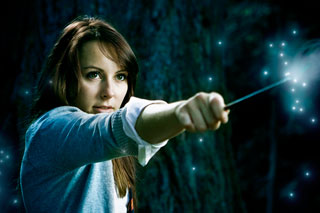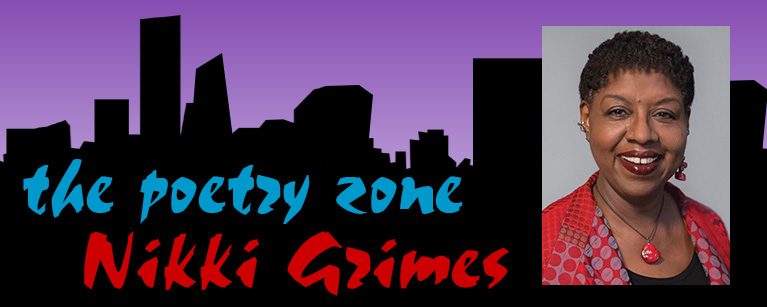 The problem with YA literature today is— fill in the blank. Some scream that the genre has gone too dark: drugs, alcohol, dystopian tales, profanity-overkill, parades of paranormal fantasies. All true. Others complain about zombies and other gore, about witches and warlocks and werewolves. But I have a bigger bone to pick: originality, or the lack thereof. That, my friends, is what’s wrong with children’s and YA literature today.
The problem with YA literature today is— fill in the blank. Some scream that the genre has gone too dark: drugs, alcohol, dystopian tales, profanity-overkill, parades of paranormal fantasies. All true. Others complain about zombies and other gore, about witches and warlocks and werewolves. But I have a bigger bone to pick: originality, or the lack thereof. That, my friends, is what’s wrong with children’s and YA literature today.
Seen any new movie sequels, lately? What about remakes? The entertainment section of the local newspaper reeks of them, and there’s plenty more where those came from. But you won’t just find them in the neighborhood six-plex. A trip to your neighborhood bookstore (if you still have one) will do just as well.
Here’s what you’ll find. In volume after volume, you’ll meet a character who leaves the only home he’s ever known. He attends a school with familiar Gothic architecture. Along the way, he discovers a supernatural gift. And, oh yes, the child is an orphan.
Then, of course, there is the second type of volume. This one features a teenaged girl who is far away from home. She meets a dashing, but rather standoffish, young man she finds herself attracted to. There’s something slightly odd about this boy, though. His hand is cold to the touch and sometimes his eyes turn blood-red. If this storyline does not sound familiar, then you, my friend, have been living under a rock.
Children’s and YA literature has gone Hollywood, people. I’m not talking so much about the plethora of sequels as I am about the plethora of clones: Harry Potter-wannabes and Twilight re-treads chief among them.
Why all the copycats? There’s a shake-up in the industry, as we all know. The children’s market has shifted from backlist, to mid-list, to front-list. Then, too, as libraries dwindle at an alarming rate, so do library sales, which once accounted for a large chunk of a publisher’s bottom line. The increasing numbers of titles available on the Internet are also having an impact on cloth-book sales, though few of us are sure of what the end result of this trend will be. I, personally, wave away those who make loud pronouncements about the death of the book. No, Chicken Little, the sky is not falling. It is, however, extremely overcast.
I’ll grant you, from a marketing point of view, there is reason for concern. I get that. Because of that concern, fewer publishers are willing to produce the so-called quiet book. Good Night Moon and Charlotte’s Web would have a tough time finding a publisher in this economy, and that’s absolutely criminal. Literary jewels are not what publishers are seeking, in the main. Everyone has gone blockbuster-crazy. Everybody wants the big book, the runaway bestseller. And who wouldn’t relish the outrageous success of Twilight? I can understand why an author might be tempted to try her hand at creating a literary clone for a chance at reaping similar monetary rewards. But here’s the thing: bestsellers become bestsellers largely because they’re original, whether in content or structure. And, by definition, an original is original because it is one of a kind.
But let’s say your copy of somebody else’s idea is successful. Let’s say you do make a few extra bucks hashing out that clone. What happens to those stories that are uniquely your own, those books that you alone were meant to write? Will they ever see the light of day? It’s doubtful. And when those extra C‑notes are spent on the house, the car, or the classic Armani, and the hollowness of your “success” clangs in your ear to distraction, what then?
No one can keep you from pouring your creative energy into cloning someone else’s original idea, of course. But if you do, chances are you’ll have little self or soul left to produce, and enjoy, the brilliance of your own original creations. And, by the way, your original idea is priceless, simply because it is yours.
My mentor, James Baldwin, encouraged me to guard my gift and to write with integrity. He warned me not to ever compromise in the area of my gifting. Now, more than ever, I understand exactly what he was talking about.
When you first dreamed of becoming an author, did you have dollar signs dancing in your head, or were your thoughts filled with liquid language, imaginary vistas, and larger-than-life characters who might leap from the page? I think I know the answer to that question. Here’s what I have to say to you: write your own story, not somebody else’s. In the end, you’ll be proud of yourself for having done so.



8 Responses
So right!
Oh, well said! I am reviewing yet another paranormal romance novel with yet another unbearably beautiful boy as (emotionally unavailable)love interest. All I can say is, really? This is the best you can offer? I will be sending my YA Lit students to your blog, ma’am. They already read your books.
Stumbled upon this post today–I rarely get a chance to visit blogs. Loved the advice of your mentor, James Baldwin, a writer I’ve long admired. I say the same to my own writing students–protect your gifts. I am so happy you held to yours.
Huzzah, Nikki. In the end a writer’s secret weapon is her imagination. Imagination kept in a cage produces repetition. Imagination allowed to roam free-range produces innovation and originality. The metaphor of the laying hen is worth expanding on. Writers should ask themselves: Am I a factory chicken or a free-range chicken? And what sort of eggs am I laying as a result?
Maybe it is just that originality is dying a slow death. I hear too many influencers and educators telling the younger generation that there are no more ‘original thoughts’, perhaps they are starting to believe it. I doubt this is true, when original replaces sassy and sexy as the latest media fashion we will no doubt see lots of great new work.
Nikki, I agree that our current selections of literature are lacking in originality and creativity. This is also seen in the remakes and sequels of the movies. There are a lot of recycled themes from a profit-minded industry. As consumers we need to take a step back and think about what we’re ingesting. We need time to discover the value of quality literature and what it can be. If we do, I think we’ll be able to seek out the true treasures amongst the reproductions.
Hello,
I share your concerns about YA Lit. I find that the formulaic and comfortable brain candy is what students are reaching for because it does not challenge them. When we put those “quiet” books in their hands, they are bored or frustrated by them. What is the answer?
Nicole
Nikki, Well said, but my kids never cared for Twilight and the Harry Potter books were boring to them. Something about them being a load of crap. Everyone has their tastes and these types of books did not cut the mustard here. My son’s favorite books during the Harry Potter craze? Two years before the Mast, the old man and the sea and Fahrenheit 451. In fact, I am rereading the 451 novel — it has been 30 years. My daughter favorite books? Anything about or by Jim Morrison, On the Road, and The Road by McCarthy. There are still a lot of folks reading books with pages in them also. Nothing like turning a page and hearing the paper sound.. All is not lost. I wonder where the Potter books and Twilight will be 20 years from now? I know they are not like Two years before the mast — a favorite of mine I led my son to.
William